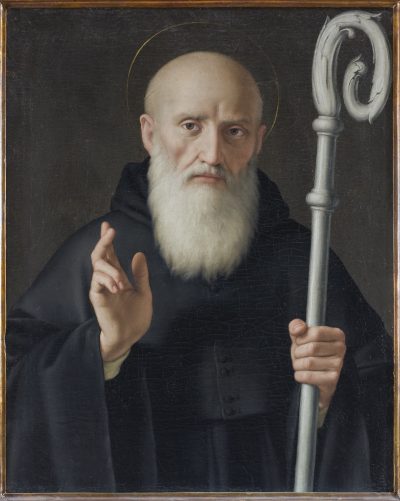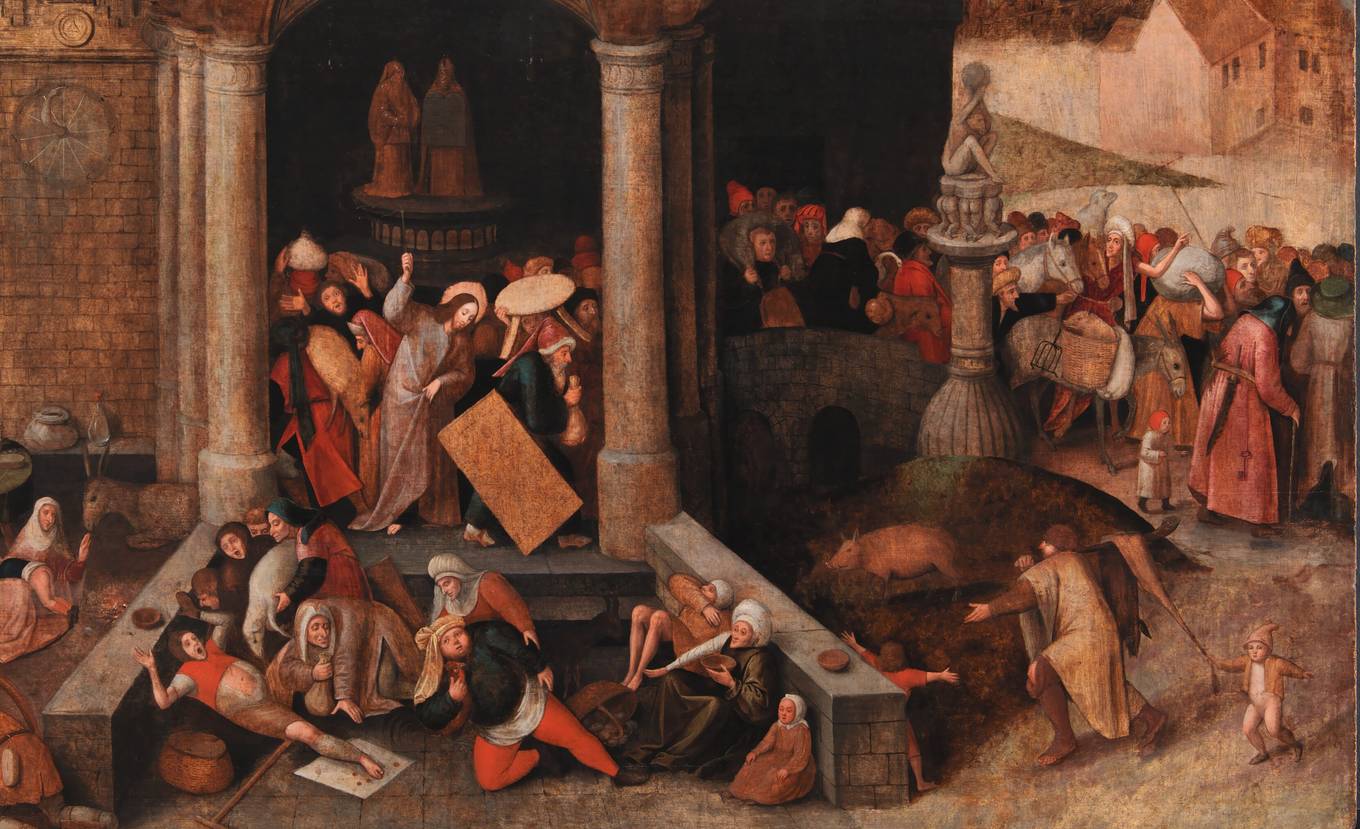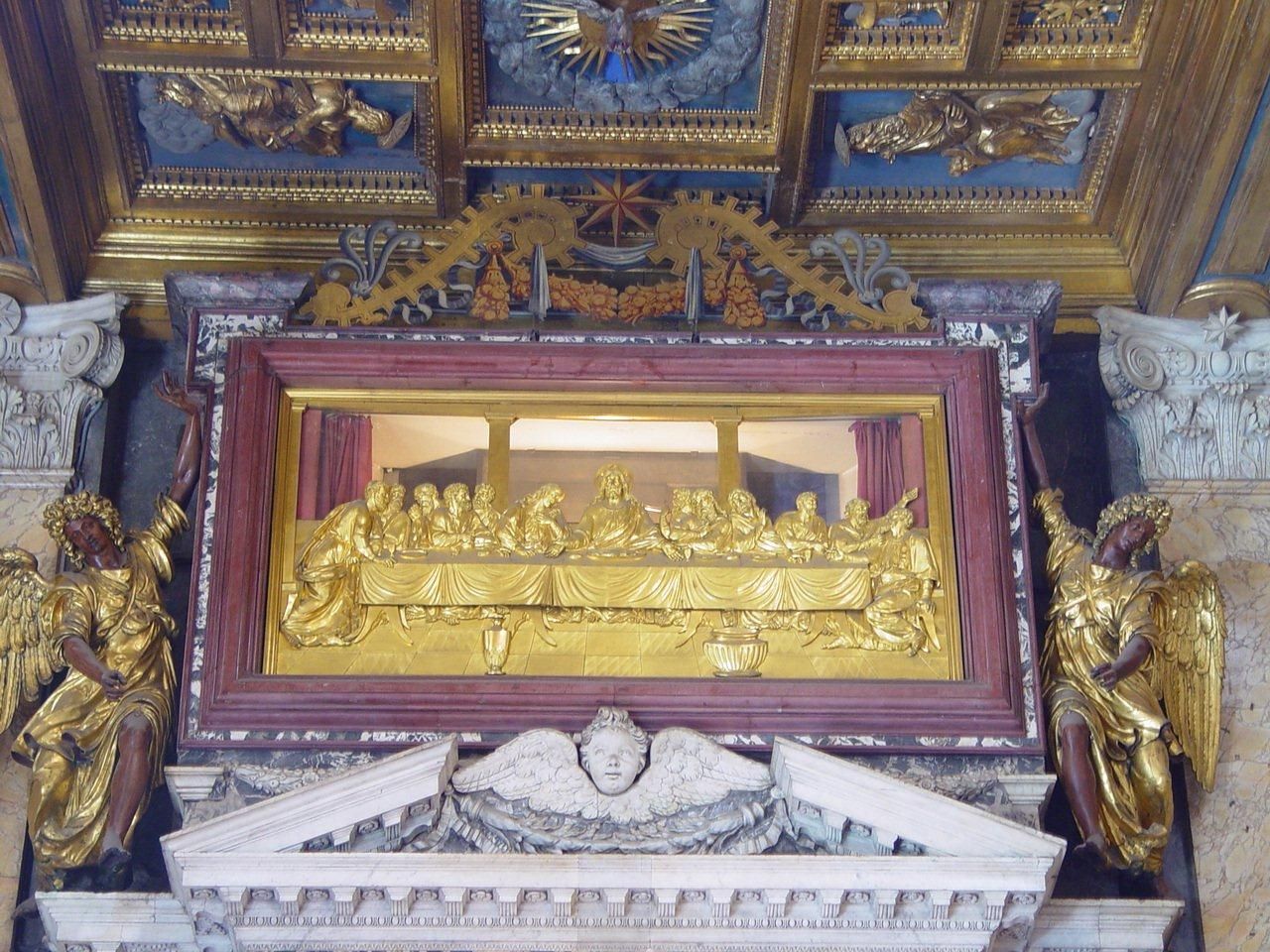While ye have the light of life
2 Jan. 3 May. 2 Sept.
Let us then at length arise, since the Scripture stirreth us up, saying: “It is time now for us to rise from sleep.” And our eyes being open to the deifying light, let us hear with wondering ears what the Divine Voice admonisheth us, daily crying out: “To-day if ye shall hear His voice, harden not your hearts.” And again, “He that hath ears to hear, let him hear what the Spirit saith to the Churches.” And what saith He? “Come, my children, hearken to Me, I will teach you the fear of the Lord. Run while ye have the light of life, lest the darkness of death seize hold of you.”
Here Saint Benedict is following closely the text of the Regula Magistri, a slightly older collection of monastic precepts with which he was familiar. If Saint Benedict transcribes lengthy portions of the Regula Magistri, it is because they resonate with his own experience and express the traditional teaching that he wishes to impart. Here, Saint Benedict passes from addressing the individual as a son, and uses the first person plural, indicating thereby that his sons are to live together.
Saint Benedict sounds a wake–up call or, rather, tells us that God Himself, speaking through Sacred Scripture, summons us out of the sleep of mediocrity and sin into the shining light of Christ, the Sun of Justice. The text of the Apostle that Saint Benedict quotes resonates with the fragment of a chant sung at Baptisms in the early church:
Awake, thou that sleepest, and arise from the dead, and Christ shall give thee light.(Ephesians 5:14)
The same text is sung in the mystical burial that is part of our rite of monastic profession. The monk, lying beneath the black pall, is called out of the sleep of his former life into the light of a true resurrection in Christ. Every morning, in fact, we can renew the grace of profession when we quit our beds and hasten to choir, there to stand in readiness for the praise of God. With good reason does Saint Benedict place Psalm 3 at the beginning of the Night Office and Psalm 50 at the beginning of Lauds:
I have slept and have taken my rest: and I have risen up, because the Lord hath protected me. (Psalm 3:6)
Create a clean heart in me, O God: and renew a right spirit within my bowels. Cast me not away from thy face; and take not thy holy spirit from me. Restore unto me the joy of thy salvation, and strengthen me with a perfect spirit. (Psalm 50:12–14)
There is a fascinating structure in this fragment of the Holy Rule. Saint Benedict speaks first of hearing the Divine Voice; then of seeing the Divine Light; then of again of hearing the Divine Voice; and finally, again, of the Light of Life. Saint Benedict does not speak explicitly of the other (spiritual) senses of touch, taste, and smell, but in speaking of hearing and seeing, he does put us in mind of the experience of Saint Augustine, whose senses it pleased God to fill with the effects of divine grace.
You called, shouted, broke through my deafness;
you flared, blazed, banished my blindness;
you lavished your fragrance, I gasped; and now I pant for you;
I tasted you, and now I hunger and thirst;
you touched me, and I burned for your peace. (Confessions, Book X, Chapter 27)
Into his structure of twice hearing and twice seeing, Saint Benedict weaves Romans 13:11; Psalm 94:8 (Hebrews 3:15); Apocalypse 2:7; Psalm 33:12; and John 12:35.
1. It is now the hour for us to rise from sleep. For now our salvation is nearer than when we believed. (Romans 13:11)
2. To day if you shall hear his voice, harden not your hearts. (Psalm 94:8)
3. He, that hath an ear, let him hear what the Spirit saith to the churches. (Apocalypse 2:7)
4. Come, children, hearken to me: I will teach you the fear of the Lord. (Psalm 33:12)
5. Walk whilst you have the light, that the darkness overtake you not. And he that walketh in darkness, knoweth not whither be goeth. (John 12:35) This same verse Monsignor Knox gives as: Finish your journey while you still have the light, for fear darkness should overtake you; he who journeys in darkness cannot tell which way he is going.
The first of these five passages is related to early morning — “It is now the hour for us to rise from sleep” — while the last one is related to nightfall — “Finish your journey while you still have the light”. The three intermediate passages describe the whole monastic day in terms of listening to the Word of God (1) in one’s own heart; (2) in the context of the Church, the Ecclesia orans (the praying Church) and the Ecclesia docens (the teaching Church); and (3) as dispensed by the abbot, charged with handing on to his sons the tradition that he himself received.
The son of Saint Benedict is a monachus audiens; be he praying or working in solitude, or in his choir–stall in the Oratory, or sitting in Chapter, is always listening to Christ, so that one may say of the monk what was said of Mary of Bethany, audiebat verbum illius, “he hearkened to His words” (Luke 10:39).



